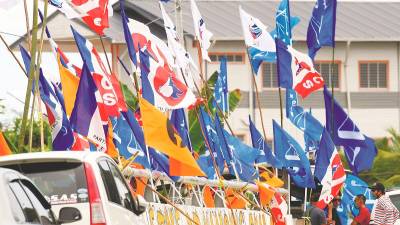PETALING JAYA: The upcoming Sabah election will not alter the country’s political balance no matter who wins, said political observers, as all major state players are already aligned with Prime Minister Datuk Seri Anwar Ibrahim’s Pakatan Harapan-led (PH) federal government, meaning that the real battle will be over local control, not national power.
Political scientist Professor James Chin said Anwar has little reason to be concerned about the outcome because both Gabungan Rakyat Sabah (GRS) and Barisan Nasional (BN) – the main blocs vying for control – are part of the Unity government.
“He’s not worried. Anwar already won the election before it even started,” Chin told theSun.
He said caretaker chief minister Datuk Seri Hajiji Noor and GRS missed a strategic opportunity to dissolve the 16th Sabah State Legislative Assembly last year and tighten their hold before the state mineral resources corruption scandal broke.
“And then, there was also the floods in Sabah,” added Chin.
With the Asean Summit scheduled for later this month, Chin expects polling to be next month,
as the Election Commission would likely avoid overlapping the two major events.
Nusantara Academy for Strategic Research geostrategist Prof Azmi Hassan echoed that whichever party forms the next state government, it will still seek cooperation with PH at the federal level, even if contesting independently.
“Whichever party forms the state government will want to work with PH at the federal level.
“We can see that PH’s seat arrangement with GRS in Sabah is minimal, but the understanding
is there.”
Azmi added that even the opposition Warisan would likely cooperate with the Unity government if it comes to power.
“Warisan does not work with BN in Sabah, but I don’t see any issue of them cooperating with PH-BN at the national level.”
He noted that party campaigns would revolve around state concerns – infrastructure, flood mitigation and economic development – rather than federal politics.
“That’s why I believe around 90% of the issues in this election will be local. National issues will take a back seat.”
Asia Group Advisors associate director Kamles Kumar said the state polls underscore Malaysia’s shift towards coalition-based politics, a trend reflected globally.
“In this environment, the formation of coalitions after the elections is becoming more common.”
He said GRS, despite contesting against BN and Warisan, is positioning itself as the next state government.
Kamles said Umno’s influence in Sabah has weakened since 2018, even as veteran politicians continue to dominate.
“There is always space for a new government and new faces.
“But Sabah politics is still driven by money and political legacy.
“Removing the old guard is not easy, especially for younger politicians.”
He said Warisan may have a slight edge, but GRS benefits from incumbency and control of state resources.
“There are a lot of internal problems in Warisan that need attention.
“GRS, on the other hand, has the advantage of incumbency – the coalition is in power and has the resources to maintain its position,”
he added.
The 17th Sabah election is expected to be held by November following the dissolution of the State Legislative Assembly on Monday. A total of 73 seats will be contested.
